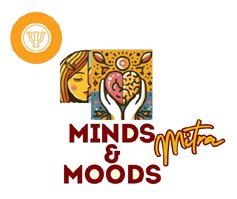Unlocking a Child’s World: Understanding Play Therapy
Play therapy is a powerful and effective form of counselling for children. For a child, play isn’t just a pastime; it’s their primary language. When they can’t express their feelings verbally, play becomes a safe and natural way for them to communicate their experiences, emotions, and struggles. A trained child psychologist or mental health counsellor uses this approach to help children resolve problems and move toward healthy emotional development.
A Trusted Professional in Nagpur: Rrimi Bodalkar
For parents in Nagpur seeking a qualified professional, Rrimi Bodalkar, a Sr. Psychotherapist / Mental Health Counsellor, offers a wide range of services for both children and adults. With her M.A. in Psychology (Counselling) and PGDMH (Clinical), she provides a comprehensive and specialized approach to mental wellness. As an NSDC Certified professional in Psychometric Analysis & Learning Style Assessment, she is well-equipped to perform assessments like IQ testing psychologist or a general personality assessment. Her specialization in CBT, REBT & DBT (Cognitive Behavioral Therapy, Rational Emotive Behavior Therapy & Dialectical Behavior Therapy) allows her to effectively address various issues, from depression therapy and PTSD counselling to workplace stress and burnout counselling. While her primary focus is on older clients, she works with parents and families, offering parenting support counselling and guidance on developmental challenges.
Recognizing the Need: Symptoms and Causes
Parents often seek play therapy when they notice changes in their child’s behavior. The symptoms that may indicate a need for help can include:
- Behavioral Issues: Aggression, withdrawal, frequent tantrums, or defiance.
- Emotional Distress: Persistent sadness, anxiety, sudden fear, or a sense of helplessness. These may be signs of trauma therapy needs.
- Social Difficulties: Trouble making friends, social skills training issues, or struggling with relationships at school (school stress counselling).
- Academic Problems: A sudden drop in grades or a refusal to go to school, which may require an academic stress psychologist.
- Traumatic Events: Experiencing a significant life event like a death (grief and loss counselling), a divorce (couple therapy), or abuse.
The causes for these behaviors can be diverse. They might stem from family changes, bullying, a personal trauma, or underlying conditions like ADHD or Autism spectrum evaluation. Play therapy is also a key component of support for special needs children.
The Therapeutic Process
The procedure of treatment in play therapy is non-directive and child-centered. The child psychologist provides a safe, welcoming space filled with carefully selected toys, art supplies, and games.
- Creating a Safe Space: The therapist builds a trusting relationship with the child, allowing them to feel secure and in control.
- Unstructured Play: The child leads the session, choosing their own activities. The therapist observes the play, interpreting the child’s unspoken messages and emotional states. They might see a child act out a scene of conflict with dolls, which could be a form of anger management counselling or relationship counselling on a child’s level.
- Therapeutic Intervention: The therapist may gently join in the play, offering supportive comments or mirroring the child’s actions to help them process their feelings.
- Emotional Regulation: Over time, the child learns to express difficult emotions in healthy ways and develop new coping skills, which is a form of personality development counselling.
This form of behavioral therapy can be particularly useful for addressing negative thinking, confidence building, and other core issues.
Frequently Asked Questions (FAQ’s)
Q1: How is play therapy different from just playing at home? A: In play therapy, the play is purposeful and structured within a therapeutic relationship. The child psychologist is trained to observe and interpret the child’s play to address underlying issues, unlike regular play at home.
Q2: My child is struggling with school. Can play therapy help? A: Yes. Play therapy can address the emotional causes of school stress counselling and academic difficulties, such as anxiety or low confidence. For specific learning challenges, a psychologist may recommend additional assessments like ADHD testing or Neuropsychological testing.
Q3: What if my child won’t talk to the therapist? A: That’s the entire point of play therapy. The child doesn’t need to talk. Their feelings and experiences are communicated through their play, and the therapist is trained to understand this non-verbal communication.
Q4: Is play therapy only for children? A: While primarily for children, the principles of play can be adapted for adults in personal counselling to explore and express difficult emotions in a non-traditional way.
Q5: Can play therapy help with trauma? A: Yes. Trauma therapy often incorporates play-based techniques, as children often struggle to verbalize their traumatic experiences. Play allows them to process and re-enact events in a safe and controlled environment.

